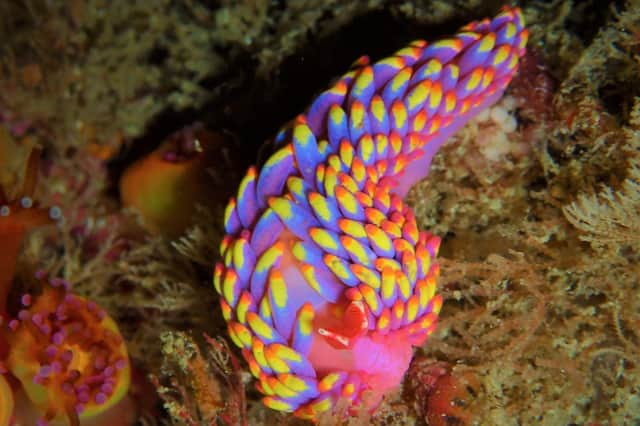Wildlife Trusts' warning about protecting marine environment should be heeded – Scotsman comment


Other notable reports included the first-ever sighting of a swordfish off the Isle of Man; the appearance of a 100-year-old Greenland shark washed up at Newlyn in Cornwall; and a large group of normally solitary minke whales which gathered off the Yorkshire coast.
Such are the “wonders beneath the waves” that the Scottish Wildlife Trust has published a series of snorkel trails to encourage people to see for themselves what life is like in our waters. Of course, they may also hope to raise awareness of the host of threats to the marine environment, including climate change, pollution and plastic waste, over-development of the coasts, and more.
Advertisement
Hide AdAdvertisement
Hide AdDr Lissa Batey, head of marine conservation at the Wildlife Trusts, stressed that the sea “needs better protections to help nature recover and thrive as a matter of urgency”. "Protecting large areas of our oceans is crucial for fishing and other industries that rely on healthy seas, as well as providing security for important carbon-storing habitats like seagrass meadows and seabed sediments,” she added.
Her point about the importance of healthy seas is key. They are a vital source of food and jobs, so we do need to exploit its bounty. However, if we do so in a way that gradually degrades the environment, then this natural source of wealth will diminish. Instead, we need to ensure our activities cause the least possible amount of harm and look for ways to help nature thrive. If we can do this, then the health of our seas should increase, along with the benefits that we derive from them.
Just as on land, striking the right balance is not simple and it does involve prioritising a long-term view. However, with rising concern that humans have begun the Sixth Mass Extinction of life on Earth and global warming posing a steadily rising threat, surely humanity has finally woken up to the dangers of short-termism?
Comments
Want to join the conversation? Please or to comment on this article.